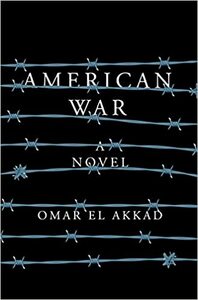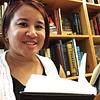Take a photo of a barcode or cover
50 years in the future, America is fighting another civil war. This time, rather than slavery, the issue is oil.
The Chestnut's are a family living a quiet life in Louisiana, trying to get by in a region that has not embraced the new no oil laws. They don't choose sides, they don't fly the flags of any political faction. But this is wartime, and no one gets to sit it out.
We see the war through the eyes of three generations of Chestnut's; the early days when they are forced to flee their home and survive in refugee camp. the Middle years, when the area where they lived seemed to be losing the war, and extreme measures were required; and the end of the war, when peace and reunification seemed to be the best, and the worst thing for everybody.
The Chestnut's are a family living a quiet life in Louisiana, trying to get by in a region that has not embraced the new no oil laws. They don't choose sides, they don't fly the flags of any political faction. But this is wartime, and no one gets to sit it out.
We see the war through the eyes of three generations of Chestnut's; the early days when they are forced to flee their home and survive in refugee camp. the Middle years, when the area where they lived seemed to be losing the war, and extreme measures were required; and the end of the war, when peace and reunification seemed to be the best, and the worst thing for everybody.
Yay: Quite gut-wrenching, and I mean that in the best way. The reader feels the loss, hope, and anguish that riddles Sarat's life. You vacillate between wanting to cheer for her, or throttle her; but overall, you're left with more of a disgusted pity.
American War is incredibly well-written, with several smaller moments within the book echoing the overall theme of the warping of humanity in times of cruelty.
This would make an excellent book club pick. I wish I had someone to discuss it with.
Nay: The underlying cause of the war required more suspension of belief than I was willing to give. It seemed incredibly unlikely that in a matter of 60 years, the Middle East has unified into a peaceful, thriving empire, racism/classism in the US is gone, and the main source of contention in the US is along regional lines.
received via Netgalley
American War is incredibly well-written, with several smaller moments within the book echoing the overall theme of the warping of humanity in times of cruelty.
This would make an excellent book club pick. I wish I had someone to discuss it with.
Nay: The underlying cause of the war required more suspension of belief than I was willing to give. It seemed incredibly unlikely that in a matter of 60 years, the Middle East has unified into a peaceful, thriving empire, racism/classism in the US is gone, and the main source of contention in the US is along regional lines.
received via Netgalley
challenging
dark
emotional
reflective
sad
tense
slow-paced
Plot or Character Driven:
A mix
Strong character development:
Yes
Loveable characters:
No
Diverse cast of characters:
Yes
Flaws of characters a main focus:
Yes
I listened to this on audiobook and I think it had a great impact on how I digested this novel. What was scariest about this book was how it managed to both straddle the plausibility of the future and take remnants of the past. The very premise of this novel is so eerily recognisable as something that could very quickly happen, especially in the current global political climate.
This novel follows Sarat, starting from her life as a young girl during the Second Civil War, where her home in Louisiana is swallowed up by the water and forces her family to take on refugee status and try to get another state. Then, through multiple parts of her life, the novel explores Sarat's role in ending the War, how she learned of the past and just how her world came into being, and the horrific punishment that came to those who were fighting for their own individual rights.
For something with such an intense and interesting dystopian concept, I can see why some people may have found this book quite difficult to get through. There are occasions when the prose becomes simply description, and a lot of our understanding of the current world relies on fictionalized history created by the author. We don't spend a huge amount of time in each section of her life, which makes the entire novel seem a bit disjointed.
Regardless, I really enjoyed this book. It definitely takes themes from The Hunger Games and The Handmaid's Tale and puts a political spin on it that readers in 2016/17 can sink their teeth into. It's almost like a warning sign to us; don't let us become like the character's in this book. Don't let the world change without our consent and our own movement.
This novel follows Sarat, starting from her life as a young girl during the Second Civil War, where her home in Louisiana is swallowed up by the water and forces her family to take on refugee status and try to get another state. Then, through multiple parts of her life, the novel explores Sarat's role in ending the War, how she learned of the past and just how her world came into being, and the horrific punishment that came to those who were fighting for their own individual rights.
For something with such an intense and interesting dystopian concept, I can see why some people may have found this book quite difficult to get through. There are occasions when the prose becomes simply description, and a lot of our understanding of the current world relies on fictionalized history created by the author. We don't spend a huge amount of time in each section of her life, which makes the entire novel seem a bit disjointed.
Regardless, I really enjoyed this book. It definitely takes themes from The Hunger Games and The Handmaid's Tale and puts a political spin on it that readers in 2016/17 can sink their teeth into. It's almost like a warning sign to us; don't let us become like the character's in this book. Don't let the world change without our consent and our own movement.
challenging
dark
reflective
slow-paced
Plot or Character Driven:
Character
Strong character development:
Yes
Loveable characters:
No
Diverse cast of characters:
Complicated
Flaws of characters a main focus:
Yes
I have some mixed feelings about American War. While I didn’t really enjoy it, I have to admit I was captured in the world and it held my attention. I think El Akkad writes well – he builds worlds and characters well – but as far as story goes it was a bit lacking.
El Akkad is first a journalist, and I think that came out really well in American War. He focuses on just the right thing to add emphasis to the gruesome nature of war and the way traumatized people can respond to the world around them. He sums it up nicely in the ending dialogue, saying that after a while it’s not about good or evil, but about taking care of yourself and your own. It’s a reminder that life isn’t made up of binaries, but many, many shades of grey.
American War takes us forward – not too far in the future – where a civil war has broken out in the United States. The South “Red” wants to secede from the country due to new laws banning the use of fossil fuels. Our story follows Sara T. Chestnut, who goes by “Sarat”. This world reflects some of the horror in the Middle East and casts it in a fictional setting to shed an allegorical light on the situation and also the United States’ meddling. There’s both traditional violent warfare and biological warfare, and there’s a complete lack of regard for the “innocents” in the struggle. It’s heartbreaking and infuriating and El Akkad did something really interesting here and, for me, told the story from the side I relate to less. This forces empathy as you get to know the characters, which I think is one of the major goals of this book – to ask readers to understand and care about people, even if they don’t agree with them.
So while I found American War engaging from a theoretical and literary perspective, the storyline itself didn’t hold me. The story tells snippets of Sarat’s life as well as the progression of the war. The book jumped forward in time and occasionally switched perspectives in a way that was not predictable or, I think, justified. There is, for example, chapters told from Sarat’s mother’s POV and I’m not sure why that choice was made. We also discover that the entire book is being told from Sarat’s nephew’s perspective and that in itself is a logic conundrum considering what is ultimately revealed about their relationship and Benjamin’s choices.
At the end of the book, I felt as though I had travelled nowhere and accomplished nothing. It was a bit disheartening to feel as though I’d spent so much time in this world and with these characters to have such a lackluster journey. There are some odd things that are unexplained and other things that are just… too easy to drive Sarat’s personal vendettas. El Akkad tried to do everything to and for Sarat in American War and I think that in doing that, it built conflicts that were never satisfied and a life without direction. Maybe that was the point? Up to you to decide.
As a study, I think American War was really interesting and I don’t regret picking it up. It’s not a book I would read again, but I think I would pick up Omar El Akkad’s next novel out of sheer curiosity. As I said, his writing itself was compelling even if the story was a bit flat.
Graphic: Death, Torture, Violence, Death of parent
Minor: Rape
This isn't really a dystopian novel; anyone who describes it as one is seriously misunderstanding it. It's more like a commentary on the war on terror and its effects, transposed onto the States with a different empire interfering, and of radicalization. In that regard I think it's more successful than not, but would have been so much stronger if the world building was better. Unfortunately, it's a little too implausible for me to fully buy in. For example, am I really supposed to believe that only fifty years from now, Sarat's race and sexual orientation are practically non-factors in how others treat her?
All that being said, I actually did like [b:American War|33311863|American War|Omar El Akkad|https://images.gr-assets.com/books/1481495007s/33311863.jpg|52910875] and I do still think it's worth reading. Just don't think too hard about the setting when you do.
All that being said, I actually did like [b:American War|33311863|American War|Omar El Akkad|https://images.gr-assets.com/books/1481495007s/33311863.jpg|52910875] and I do still think it's worth reading. Just don't think too hard about the setting when you do.
I had too much to say about this book to just do a paragraph, so I have a few bullet points to avoid rambling.
- Wonderful prose, even in the darkest moments of the book.
- El Akkad's research and understanding supports every brushstroke of the story: the Bouazizi Empire and how the war came to be, the disappearance of the coasts, the roll of recruiters in a war torn republic and the misinformation that physical and ideological separation fosters.
- Intimate portrayal of the radicalization of an American into a terrorist, as well as how it's done on a wide scale. Homes and families destroyed by war leads to young anger, which is channeled back into the same war - we see it, but have we really felt it? This book brings home that faraway cycle in a way that sinks into your bones.
- He lays out a family and a character that is beautiful and pure and representative and - most importantly - American. Showing how regardless of race or language or geography the right set of conditions will turn a child into a soldier, killing and dying in the name of a cause they don't understand.
- Firsthand accounts and histories of the war bookend the chapters, providing a small portion of governmental perspective.
Bonus: favorite prologue of the year.
- Wonderful prose, even in the darkest moments of the book.
- El Akkad's research and understanding supports every brushstroke of the story: the Bouazizi Empire and how the war came to be, the disappearance of the coasts, the roll of recruiters in a war torn republic and the misinformation that physical and ideological separation fosters.
- Intimate portrayal of the radicalization of an American into a terrorist, as well as how it's done on a wide scale. Homes and families destroyed by war leads to young anger, which is channeled back into the same war - we see it, but have we really felt it? This book brings home that faraway cycle in a way that sinks into your bones.
- He lays out a family and a character that is beautiful and pure and representative and - most importantly - American. Showing how regardless of race or language or geography the right set of conditions will turn a child into a soldier, killing and dying in the name of a cause they don't understand.
- Firsthand accounts and histories of the war bookend the chapters, providing a small portion of governmental perspective.
Bonus: favorite prologue of the year.
This was an incredible book! It felt very real in a way that I did not expect. I really loved it.







